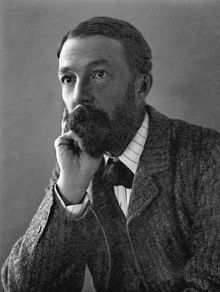JOHN ADDINGTON SYMONDS, English poet and literary critic, born (d: 1893); Another of the great forefathers of Gay Liberation. To be a homosexual in Victorian England meant membership, if one dared, in an underground fraternity. For to speak candidly of one’s tastes was to open oneself to criminal prosecution, if scandal, or one’s enemies felt inclined to claim a pound of flesh. One of the few Englishmen of the day who came closest to crusading for public acceptance of “inversion,” as he called it, was John Addington Symonds. Homosexuality was his obsession.
It was the “problem” in modern ethics that most deeply touched on his life, and he refused to hold back both questions and intelligently considered answers. In 1877 he lost his chair of poetry at Oxford because he was openly “familiar” with boys and left England for Italy, dedicating the rest of his life to exploring the problem. The result of his labors was A Problem With Greek Ethics (1833) and A Problem in Modern Ethics (1891), pioneering works of sexual apology.
Symonds was a painfully honest man. Walt Whitman, who for reasons of his own, was not, was hounded for 20 years by Symonds who wanted to know whether the author of “Calamus” was Gay. The poet, to his eternal shame, said no. Had Whitman not died shortly after his response, Symonds would undoubtedly have asked again. He was not the kind to take no for an answer.
